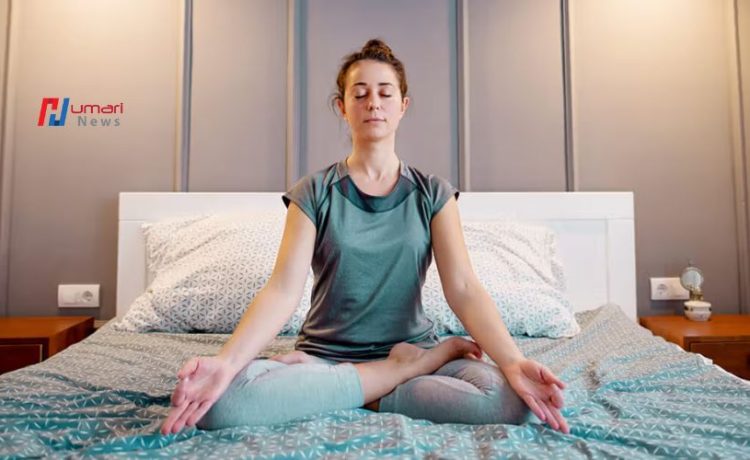Are you sick and weary of lying awake at night, unable to get any sleep? Establishing a consistent bedtime routine can help signal to your body that it’s time to wind down and prepare for rest. In this article, we will provide you with some tips on how to build a better bedtime routine for adults.
Decide on a Set Bedtime
One of the most important steps in creating a successful bedtime routine is to set a consistent bedtime for yourself. Choose a time that allows you to get a full 7-9 hours of sleep each night, and stick to it even on weekends. Your body’s natural clock will be regulated as a result, and your sleep will be of higher quality.
Put Away Electronics
Electronic devices emit blue light, which can interfere with the production of melatonin, the hormone responsible for regulating sleep. Try to power down your devices at least an hour before bedtime to give your brain a chance to relax and unwind.
Have a Light Snack or Bedtime Tea
If you’re feeling hungry or restless before bed, consider having a light snack or a soothing cup of bedtime tea. Foods like nuts, yogurt, or a banana can help promote relaxation and prepare your body for sleep.
Take a Warm Bath
A warm bath can be a great way to relax and unwind before bed. The soothing water can help ease tension in your muscles and prepare your body for sleep. Add some calming essential oils like lavender or chamomile for an extra dose of relaxation.
Listen to Music
Listening to soft, calming music can help quiet a busy mind and lull you into a peaceful state before bed. Create a playlist of your favorite soothing tunes and let the music help you drift off to sleep.
Stretch, Breathe, and Relax
Engaging in some light stretching or breathing exercises before bed can help release tension in your body and promote relaxation. Try some gentle yoga poses or deep breathing exercises to help calm your mind and prepare for sleep.
Practice Meditation
Meditation is a powerful tool for quieting the mind and promoting relaxation. Spend a few minutes before bed focusing on your breath and clearing your mind of any distractions. This can help you let go of the stresses of the day and prepare for a restful night’s sleep.
Read a Good Book
Reading a book can be a great way to unwind and escape into a different world before bed. Choose a physical book or an e-reader with a non-glare screen to avoid the stimulating effects of blue light from electronic devices.
Write Down a To-Do List or Journal
Writing down your thoughts or a to-do list for the next day can help clear your mind and reduce anxiety before bed. Keeping a journal can also be a therapeutic way to process your emotions and reflect on your day.
Prepare Your Bedroom
Creating a calm and soothing sleep environment is essential for a good night’s rest. Make sure your bedroom is cool, dark, and quiet, and invest in quality bedding and a comfortable mattress to support a restful night’s sleep.
FAQs:
Q: Why is it important to have a set bedtime?
A: Having a set bedtime helps regulate your body’s internal clock, also known as the circadian rhythm. Going to bed at the same time each night and waking up at the same time each morning can help improve the quality of your sleep and make it easier to fall asleep and wake up.
Q: Why should adults put away electronics before bedtime?
A: The blue light emitted by electronic devices such as smartphones, tablets, and computers can interfere with the production of the sleep hormone melatonin, making it harder to fall asleep. Putting away electronics at least an hour before bedtime can help signal to your body that it’s time to wind down and relax.
Q: Is it beneficial to have a light snack or drink bedtime tea before sleep?
A: Having a light snack or a cup of bedtime tea can help promote relaxation and prepare your body for sleep. Foods high in tryptophan, such as bananas, nuts, and dairy products, can help increase the production of serotonin, a neurotransmitter that promotes feelings of calmness and relaxation.
Q: How can stretching, breathing, and relaxation techniques help improve sleep quality?
A: Taking a few minutes to stretch, practice deep breathing, or engage in relaxation techniques such as progressive muscle relaxation can help reduce stress and tension, making it easier to fall asleep. These techniques can also help quiet the mind and promote a sense of calmness before bedtime.
Conclusion:
In conclusion, building a better bedtime routine for adults is all about setting the stage for a peaceful night’s sleep. By incorporating these tips into your nightly routine, you can create a relaxing environment that promotes restful and rejuvenating sleep. Start implementing these suggestions today and watch as your sleep quality improves. Sweet dreams!







